
Women are more likely to die from bladder cancer earlier on after diagnosis, according to recent study findings published in the European Journal of Cancer. However, after that time frame the risk of death is higher for men.
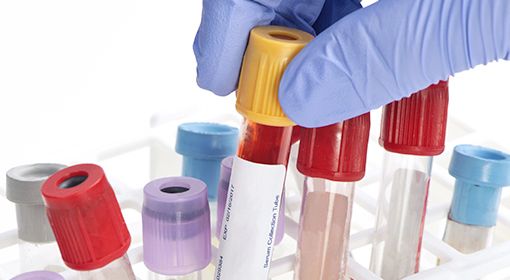

Women are more likely to die from bladder cancer earlier on after diagnosis, according to recent study findings published in the European Journal of Cancer. However, after that time frame the risk of death is higher for men.

Many questions still remain in the treatment of localized bladder cancer, like which patients are best suited to receive neoadjuvant (pre-surgery) chemotherapy – a procedure that could be beneficial to many, but comes with increased toxicity.

Because little is known about the effect of patients' sex on the efficacy of immune checkpoint inhibitors as cancer treatments, the researchers performed a systematic review and meta-analysis to determine the heterogeneity of immune checkpoint inhibitor efficacy between men and women.
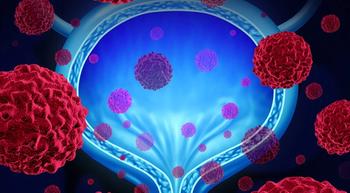
Immunotherapy is being tested in the second-line setting for metastatic bladder cancer. Pending trial results, the role of chemotherapy for this patient population may change.
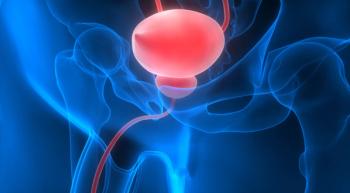
Phase 2 study results showed that patients with metastatic or unresectable, FGFR-positive bladder cancer may have a third-line option for treatment.

The FDA has incorporated PD-L1 status into the labels for Keytruda (pembrolizumab) and Tecentriq (atezolizumab) for existing frontline approvals for platinum-ineligible patients with urothelial carcinoma, based on lower overall survival (OS) rates with the PD-1/PD-L1 inhibitors compared with platinum-based chemotherapy for patients with PD-L1–low expressing platinum-eligible urothelial carcinoma.

Oncolytic, or engineered, viruses that infect and kill cancer cells are showing promise.

Enfortumab vedotin may be a potential novel therapy for patients with locally advanced or metastatic urothelial cancer, according to updated phase 1 study findings presented during the 2018 American Society of Clinical Oncology (ASCO) Annual Meeting.

PD-1 and PD-L1 inhibitors are generally well-tolerated, so most patients face little or no issues with the drugs. However, there are still some things to look out for.

Patients with non-muscle invasive bladder cancer experience high levels of distress, according to one study.

Immunotherapy is making landmark change in the treatment of patients with genitourinary (GU) cancers, with bladder cancer being the pioneer in the field, having five FDA-approved checkpoint inhibitors. But kidney cancer is not far behind, with a breakthrough therapy designation granted for a Keytruda (pembrolizumab) combination this past January.

The combination use of Cyramza (ramucirumab) plus docetaxel showed improvements in objective response rate (ORR) and a positive trend in overall survival (OS) among patients with advanced bladder cancer, according to additional results from the phase 3 RANGE trial.

In particular, patients whose tumors have certain genetic mutations may respond especially well to this combination approach.

While there are a few common and well-known checkpoints for bladder cancer, there are also many more than PD-1, PD-L1 and CTLA-4.
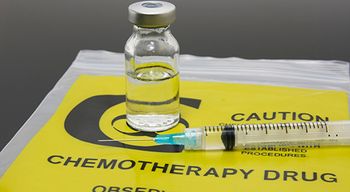
Chemotherapy can aid in making a tumor “hot” – meaning that it attracts tumor-infiltrating lymphocytes (TILs), which are linked to killing tumor cells – priming it to respond better to immunotherapy treatment.

After a recent FDA approval for an additional dosing schedule option for Opdivo, patients must be educated on the potential side effects that may occur between prolonged visits.

The Food and Drug Administration (FDA) has approved a supplemental biologics license application adding a four-week dosing schedule for Opdivo (nivolumab) across several of the PD-1 inhibitor’s indications.

Researchers from Israel, the United Kingdom (UK) and Canada sought to determine the cost-effectiveness of Keytruda for the second-line treatment of patients with advanced bladder cancer. Drug costs were compared between the US, UK, Canada and Australia.

Patients with diabetes are at a greater risk for bladder cancer, and worse, for disease recurrence and progression. So, recent research investigated if a certain diet would help.

Now that a number of immunotherapy agents have been approved in the bladder cancer space, identifying and managing the toxicities that may come along with them is critical.

Daniel J. George, M.D., discusses the role of immunotherapy, its continued integration into standards of care and what else the future holds for the treatment of bladder cancer.

“As the population of cancer survivors continues to grow, so does the importance of addressing the long-term sequelae of cancer treatment,” the authors wrote. “This hearing loss can result in multifaceted decrease in quality of life, and in pediatric patients it can impact social and academic development.”
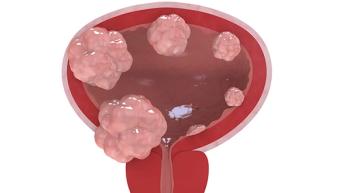
When combined with other regimens in the treatment of patients with bladder cancer, immunotherapy has been shown to be beneficial, according to Arjun Balar, M.D.

To take the next step in this research, investigators are now combining immunotherapies together, or with chemotherapy, to create added benefits and more durable, long-lasting responses.

There were monumental advances in the treatment of bladder cancer during the year 2017, with five approvals for checkpoint inhibitors in both the first and second line setting